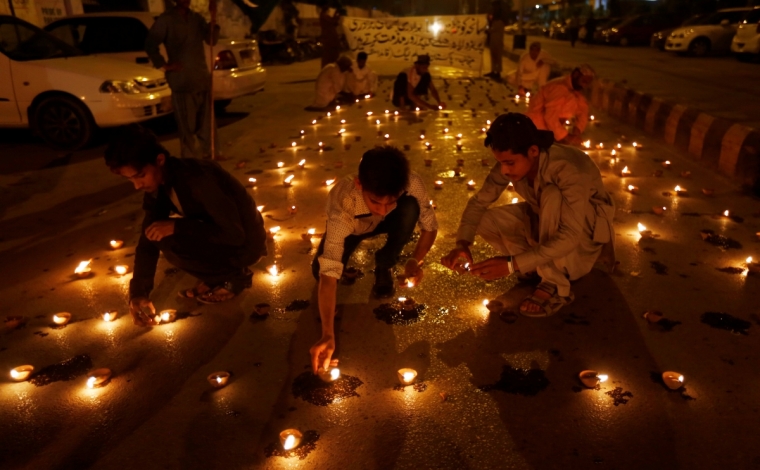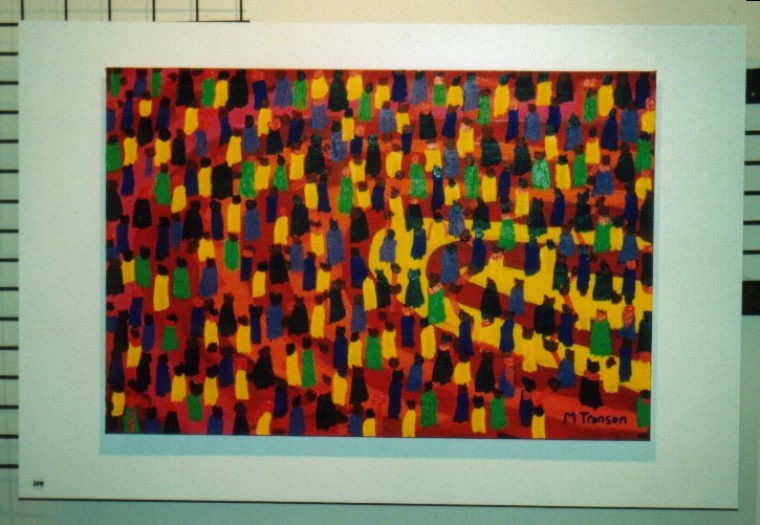

Pakistani mourners flocked to funerals on Tuesday for 74 victims, most of them lawyers, of the bombing of a hospital in the southwestern city of Quetta, and legal organisations staged a nationwide strike in protest.
Monday's suicide bombing, which struck grief-stricken colleagues crowding around the body of the slain head of the provincial bar association, was the deadliest jihadist attack in Pakistan this year.
Shreds of black cloth from slain lawyers' trademark dark suits still littered the ground on Tuesday at the Civil Hospital in Quetta, where glass from shattered windows remained and blood stained the walls.
Medical staff said up to 60 of those killed were lawyers who had gathered to mourn the assassination earlier that day of the president of the Baluchistan Bar Association, Bilal Anwar Kasi.
"We cannot understand who did it and why ... We have no personal enmity of any kind with anyone," said Shoaib Kasi, 42, Bilal Kasi's younger brother and himself a lawyer at the Baluchistan High Court.
Abdul Hamid Khokher was speaking to his brother, lawyer Rashid Khoker, on the phone just moments before the blast.
"I tried to contact him again, but we could not reach him," the grief-stricken 67-year-old said at his brother's funeral.
"I took his son Tayyab with me, and we went ... and all we could see were bodies. We started looking for my brother and at the end, we found him, he was lying there. We found his body."
ANGER, BLAME
Both a Pakistani Taliban faction, Jamaat-ur-Ahrar, and Islamic State claimed responsibility for the carnage, although Pakistani analysts and officials expressed doubt about any IS involvement.
Jamaat-ur-Ahrar, like myriad Islamist militants waging war against Pakistan's government, consider civil society workers such as lawyers as part of the system they seek to overthrow to establish their vision of strict Islamic law.
Shops, businesses, schools and universities in Quetta and beyond remained closed as the government announced three days of mourning.
On Tuesday morning, four of the more than 100 people wounded, including two more lawyers, died in hospital, taking the toll to 74, said Abdul Rehman, the medical superintendent at the Civil Hospital, Quetta, the capital of Baluchistan province.
Rehman said that last year the hospital had requested paramilitary soldiers be stationed there for security.
"We briefed ... security officials," the medic said. "They said 'we'll see what's possible'."
At Rashid Khokher's funeral on the outskirts of Quetta, the cleric leading prayers chanted: "May all the terrorists who carried out this heinous attack meet true justice."
Ghulam Ghaus Qadri, who came to say his final goodbyes to his friend added: "For how long will we carry these bodies? I'd like to ask the government, for God's sake, these attacks must not happen."
At a protest outside the Supreme Court in the capital Islamabad, Ashtar Ausaf Ali, Pakistan's attorney general, called the attackers "weak and pathetic.
"They should know that the nation and the legal community are united against them," he said.
Supreme Court Bar President Ali Zafar called for the government to do more to protect lawyers.
DOUBTS OVER CLAIMS
Some Pakistani analysts were sceptical of the Islamic State claim.
"The claim of responsibility by Jamaat-ur-Ahrar is more credible," said Muhammad Amir Rana, head of the Pakistan Institute for Peace Studies.
He noted that Jamaat had sworn loyalty to Islamic State's Middle East leadership in 2014, but later switched back to the Taliban.
It remains unclear what ties, if any, Jamaat has to Islamic State, whose leadership is a rival to both the Taliban and al Qaeda over claims to represent the true Islamist Caliphate.
Only last week, Jamaat was added to the United States' list of global terrorists, triggering sanctions.
Baluchistan, which borders Afghanistan, is home to many militant groups, most notably sectarian outfits who have launched a campaign of suicide bombings and assassinations of ethnic Hazaras - Persian-speaking Shi'ites who mostly emigrated from Afghanistan and are a small minority of the Shi'ite population in Sunni-majority Pakistan.
"Many groups based in Baluchistan have an anti-Shia agenda, so they find ideological linkages with ISIS," said a military official who was based in Quetta until 2015.
"But is ISIS present there to a degree that they can carry out this kind of well-planned, pre-meditated attack? I don't think that is possible."
Zahoor Afridi, the police officer leading the investigation, added: "Their (Islamic State) presence in Baluchistan is limited mostly to sympathisers, not to executioners."